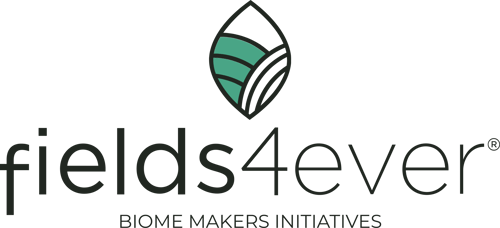R&D Projects
Projects supported by Government institutions.
Subsidies for the financing of the “investigo program”, for the hiring of young job seekers to carry out research and development for research and innovation initiatives (2022-2023).
Project title: Carbon credit system for quality agriculture. AI modeling of carbon storage through soil biology and environmental data.
- Beneficiary Entity: Biome Makers Spain SL
- File: INVESTIG/22/VA/0004
- Subsidy granted: 296.121,52€.

Development of a system for remote detection and microbiome analysis to obtain more resilient and healthy crops
- To develop a predictive model of soil resilience and soil health based on the characterization of the influence of environmental conditions and agricultural management intensity on soil abiotic properties and the structure, composition, diversity and functionality of the soil microbiome.
- To develop a system of crop soil microbiome sampling strategies using high-resolution remote sensing techniques.
- To understand the real effect of the presence of pathogenic microorganisms on crop productivity and design a pest risk mapping system combining remote sensing, microbiome sequencing, and Artificial Intelligence techniques.
International promotion and commercialization activities of BeCrop® Technology. Participation in international fairs:
- Annual Intelligent Systems for Molecular Biology, 2023, France.
- Fruit Attraction, 2023, Spain.
- Agritechnica, 2023, Germany.
- Biostimulant World Congress, 2023, Italy.
Project funded by La Junta de Castilla y León through Instituto para la Competitividad Empresarial de Castilla y León (ICECYL).

Soil microbiome modeling platform with Artificial Intelligence for a sustainable improvement of production
The main objective of this project is to enable precision agriculture with individualized treatments that improve the health and yield of crops and soil, through computational analysis of interventions in their microbiome. To achieve this, the following specific objectives have been defined:
- Analyze the microbial composition of the soil using NGS (Next Generation Sequencing) techniques.
- Identify changes in the microbiome as a consequence of treatment with agricultural inputs.
- Use the information collected to design, develop and train a decision engine with Artificial Intelligence.
Demonstrate the predictive capacity of the recommendation engine in pilot field tests.
The final result will be a decision engine based on Artificial Intelligence for the recommendation of bio-products through the microbiome that will allow a further step towards precision agriculture.
2021 CALL OF AID FOR RESEARCH AND DEVELOPMENT PROJECTS IN ARTIFICIAL INTELLIGENCE AND OTHER DIGITAL TECHNOLOGIES AND THEIR INTEGRATION INTO VALUE CHAINS C005/21-ED. File 2021/C005/00149785. Execution time from 08/10/2021 to 22/05/2024.
Proyect funded by the European Union– NextGenerationEU, through the Recovery, Transformation and Resilience Plan for the Spanish economy.

Tuning the wheat root microbiome to improve soil health and optimize rhizosphere nitrogen cycling and availability.
Main Objective
To restore and preserve soil health through wheat root traits. To achieve this, we aim at: 1) identify key traits associated with functionality of microbial guilds in the rhizosphere and root system architectural traits; 2) find the genes, genomic regions or metabolic pathways in wheat that benefit soil health; 3) develop genetic tools for breeding to introduce these beneficial traits in commercial cultivars and 4) develop a predictive model for soil health. The results will provide advantageous varieties for farmers that support a more sustainable use of land improving soil microbial biodiversity, nutrient cycling, and structure.
Coordinator: John Innes Centre, UK
Partners: Agricultural Research Council (South Africa), University of Bologna (Italy), Institute of Genetics and Developmental Biology – CAS (China), Forschungszentrum Juelich (Germany), KU Leuven (Belgium), Biome Makers (Spain).
Duration: April 2022 to March 2025.
Total Budget: 1.923.000 €
This project is supported by the European Joint Programme on Agricultural Soil Management (EJP-SOIL): https://ejpsoil.eu/
Project website: https://www.wishroots-ejpsoil.net/
Development of advanced microbiology with differentiating properties for the optimization and improvement of winemaking processes.
Reference: RTC-2017-6163-2
Duration: 01/09/2018-31/12/2021
Budget: 550.093,01 €
Consortium: Bodega Matarromera S.L., Instituto de Biología Funcional y Genómica (ibfg)-CSIC,
Universidad de Salamanca (USAL) Dpto Microbiolgía, Biome Makers Spain SL.
Objective
To obtain high quality and differentiated wines through biotechnological solutions
provided by various microorganisms involved in three bioprocesses: fermentation, bio-control
and fermentation lees lysate.
Specific Objectives
- SO1. Optimize fermentation processes to obtain wines with differentiating characteristics
through the development of new non-GMO yeast hybrids of enological and technological
interest. - SO2. Rapid and specific detection of spoilage yeasts and bacteria in wines and their
elimination, through the development of alternative analytical procedures and the use of
biotechnological tools based on the biological activity of bio-controlling microorganisms. - SO3. Enrichment of wine through the release of mannoproteins and polysaccharides from wine
lees by developing new biotechnological tools and strategies. - SO4. Implementation of developed technological innovations in the winemaking process on an
industrial scale. - SO5. Technology transfer to the sector.

